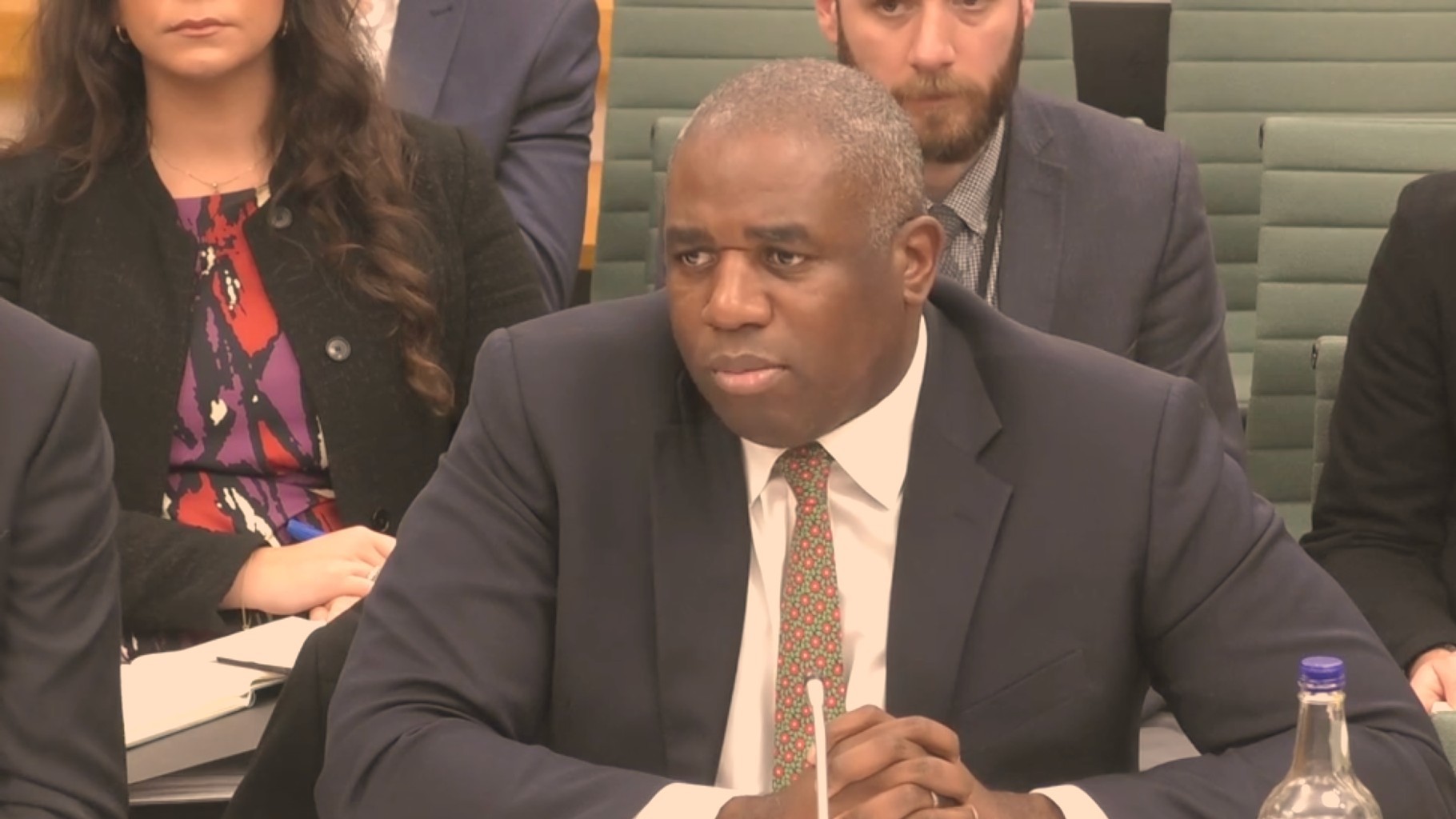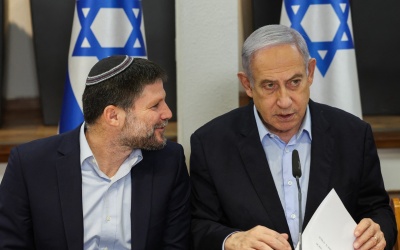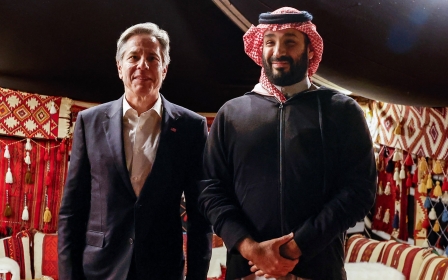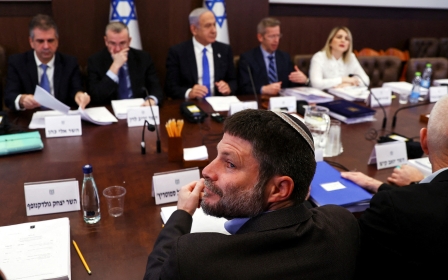UK's Lammy links Palestinian statehood to Saudi-Israel normalisation deal

British Foreign Secretary David Lammy has suggested that Palestinian statehood could be dependent on a normalisation deal between Saudi Arabia and Israel.
Speaking to the Foreign Affairs Committee on Wednesday, Lammy said there was “widespread concern” among G7 leaders who met earlier this week over Israeli threats to annex the occupied West Bank and Gaza and reiterated the UK's support for a two-state solution.
“It is the UK government’s position that we want to see two states. We want to see a secure and safe Israel, but the Palestinian cause and a desire for a state of their own is an admirable one that I’d want to support,” he said.
“There can be no room for annexation which would be illegal and quite out with international law and international norms.”
Asked by Labour MP and committee chair Emily Thornberry whether he had “a Plan B” if Israel did push forward with annexation, the foreign secretary said he is focused on Saudi-Israel normalisation.
New MEE newsletter: Jerusalem Dispatch
Sign up to get the latest insights and analysis on Israel-Palestine, alongside Turkey Unpacked and other MEE newsletters
“The hope is that Israel is able to secure a normalisation deal with Saudi Arabia and, as part of that normalisation deal, there is a pathway to a Palestinian state, a two-state solution,” he said.
Lammy noted that, during his first term, Donald Trump’s administration had been able to secure normalisation deals between Israel and Bahrain, Morocco and the United Arab Emirates, referred to as the Abraham Accords.
'The hope is that Israel is able to secure a normalisation deal with Saudi Arabia and, as part of that deal, there is a pathway to a Palestinian state'
- David Lammy
“It would be a great achievement if Saudi Arabia were able to secure that,” he said.
“But all of us who have been to the region know that is impossible without two states and without that promise for the Palestinian people.”
He added: “That is obviously where a lot of us will be focusing our attention over the coming months.”
Pressed on whether the UK government would recognise a Palestinian state during his tenure, Lammy said: “I’ve said that if we get normalisation then, by definition, I suspect we are on a path to that two states.
“We have said that recognition is a tool. It doesn’t deliver that end, but it is an important stepping stone on the road. So for example, you could see recognition alongside a deal of that kind.”
'Too many eggs in one basket'
Lammy’s comments come after US President Joe Biden, in the wake of the ceasefire in Lebanon on Tuesday, said he was recommitted to a Saudi-Israel normalisation deal.
"The United States remains prepared to conclude a set of historic deals with Saudi Arabia, to include a security pact and economic assurances, together with a credible pathway for establishing a Palestinian state and the full normalisation of relations between Saudi Arabia and Israel," Biden said.
Chris Doyle, director of the Council for Arab-British Understanding, said Lammy’s comments did not appear to indicate a change in British policy, but more a reflection of how the foreign secretary believes a Palestinian state might come into existence.
But Doyle told Middle East Eye that he thought investing hope in a Saudi-Israel normalisation deal was “putting far too many eggs in one single basket”.
Rather than halting settlement building, he said the deals between Israel and Bahrain, Morocco and the UAE sidelined the question of Palestinian statehood, and promises made on annexation “seemed to be only temporary”.
“What really should be happening instead is that Britain should be recognising that Palestinian state. Other countries should be doing likewise, particularly European nations,” Doyle said.
“Pressure should be brought on Israel so that it understands that there is a real cost to continuing the settlements, a cost to annexation and all that it is doing that is contrary to international law.”
'What really should be happening instead is that Britain should be recognising that Palestinian state'
- Chris Doyle, Caabu
There are also questions over whether Saudi Arabia and Israel could find common ground right now.
Last month, Saudi Arabia's foreign minister said normalisation between the kingdom and Israel was "off the table" until there was a "resolution to Palestinian statehood".
Doyle meanwhile cast doubt that Israel’s coalition government - the most far right in its history - would agree to a deal if it required Palestinian statehood.
“Holding on to the West Bank - or as they call it Judea and Samaria - is at the heart of their policy. It’s the heart of everything they wish to achieve," he said.
"So frankly, I think for most of them, they would say no to a Saudi deal if it meant that there had to be a Palestinian state."
Middle East Eye delivers independent and unrivalled coverage and analysis of the Middle East, North Africa and beyond. To learn more about republishing this content and the associated fees, please fill out this form. More about MEE can be found here.





